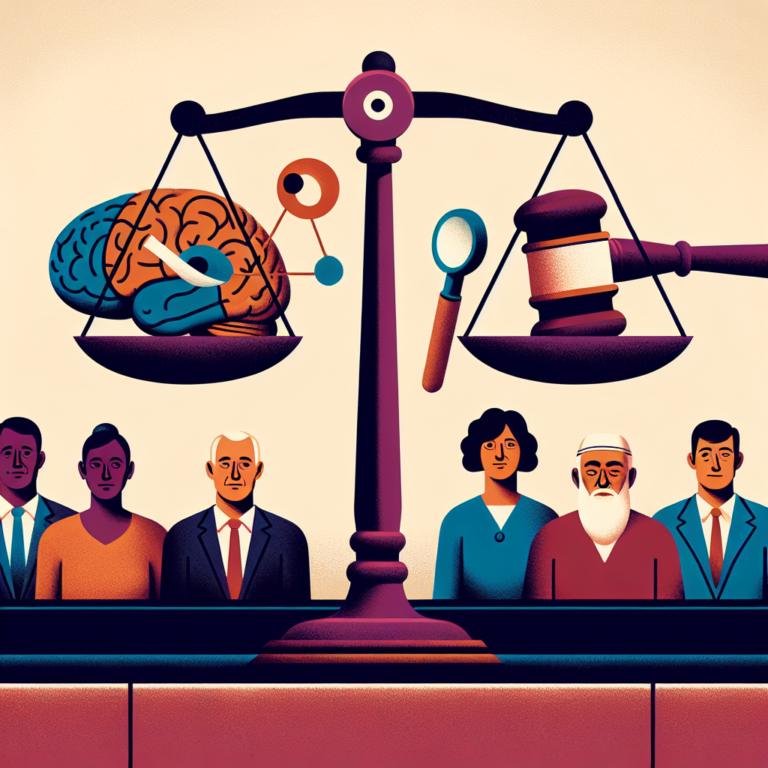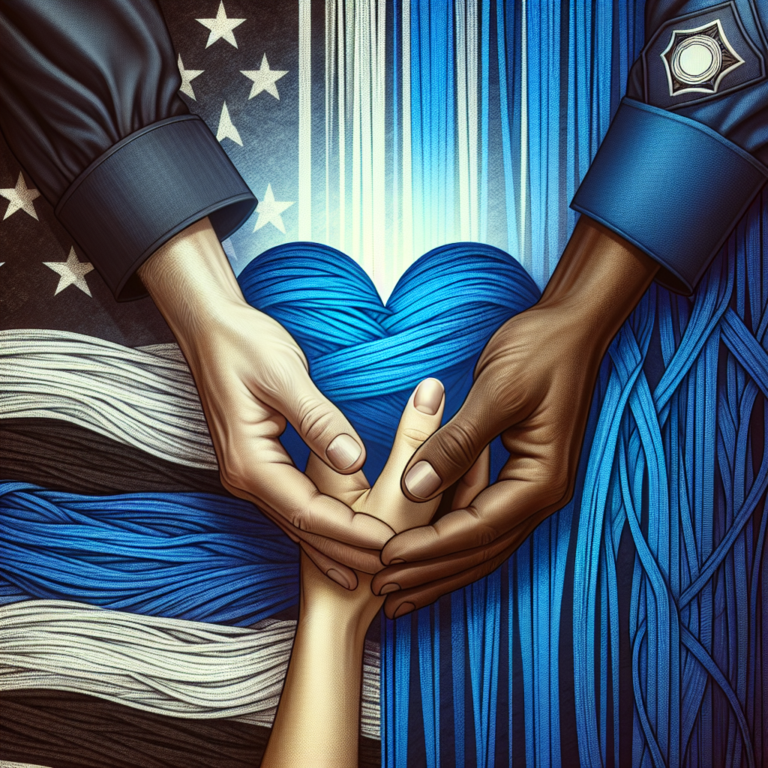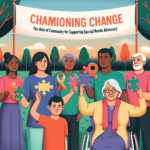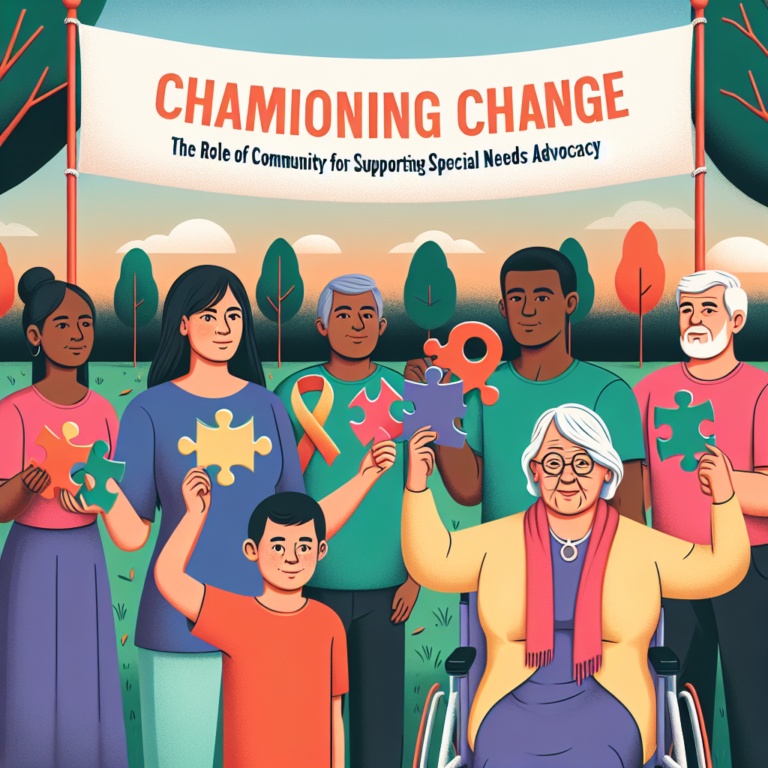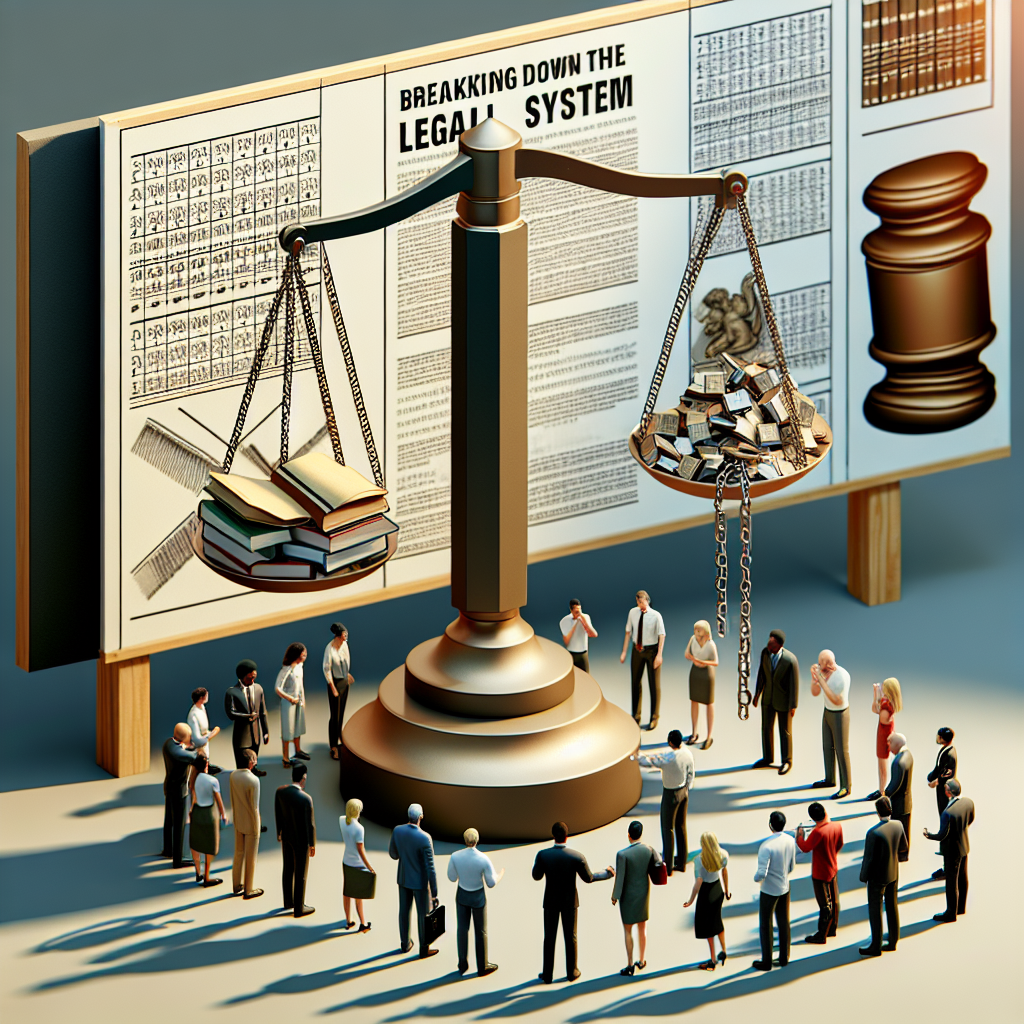
Introduction
Imagine a world in which a single statement can irrevocably alter the course of someone’s life. This isn’t just a narrative twist found in a thrilling detective novel; it is a stark reality of our legal system. The phenomenon of false confessions is a poignant reminder of how a flawed legal process can lead to catastrophic outcomes. Breaking Down the Legal System: Understanding the Consequences of False Confessions is an urgent topic that delves into how innocent individuals can end up in jail through the act of confessing to crimes they did not commit.
Understanding this intricate issue is critical, not just for legal professionals, but for every citizen who may one day interact with the legal system. This exploration will unpack the mechanics behind false confessions, the psychological pressures that contribute to them, and the societal implications when justice is derailed.
The Psychological Landscape of Confessions
Understanding Coercion
False confessions often arise from intense psychological pressure. Law enforcement techniques, while generally designed to solicit truthful admissions, can inadvertently lead innocent individuals to believe that confessing is their best option. Techniques such as:
Interrogation Time Pressure: Extended periods of questioning can lead to fatigue and breakdown in mental resilience.
- Misrepresentation of Evidence: Police may present false evidence, convincing a suspect that the case against them is overwhelming.
Tables below illustrate the different factors leading to false confessions:
| Factor | Description |
|---|---|
| Coercive Interrogation | High-pressure tactics employed by law enforcement to elicit confessions. |
| Psychological Manipulation | Strategies that undermine self-advocacy and promote compliance. |
| Innocent Misperception | A suspect may believe that confessing is the easiest way out of a stressful situation. |
Case Study: The Central Park Five
The infamous case involving the Central Park Five exemplifies the tragic consequences of false confessions. Five teenagers were wrongfully convicted for the assault and rape of a jogger in Central Park, primarily based on coerced confessions obtained under duress. Following years of legal battles and exoneration, this case underscores how vulnerable individuals can be manipulated into false admissions.
Analysis
The Central Park Five didn’t merely suffer from misdirecting justice; they were robbed of years of their lives. The psychological impact of such an experience can be lifelong, leaving scars that linger long after release.
The Role of the Legal System in False Confessions
Misguided Trust in Confessions
The legal system often operates under the assumption that individuals do not confess to crimes they didn’t commit. This misguided belief can lead juries to place undue weight on confession evidence. The reliance on confession over more concrete evidence can validate a deeply flawed system—one that disregards truth for the sake of expediency.
| Potential Outcomes | Consequences |
|---|---|
| Overreliance on Confessions | Miscarriages of Justice, wrongful convictions. |
| Lack of Re-investigation | Failure to explore other leads or evidence. |
Case Study: The Case of Brendan Dassey
In another glaring example, Brendan Dassey, a teenager with cognitive challenges, confessed to participating in a crime he did not commit. His case illustrates how limited understanding and manipulation can coalesce to yield tragic outcomes. Dassey’s confession, obtained through suggestive questioning, became a cornerstone of the case against him and led to his wrongful conviction.
Analysis
Brendan’s case exposes a critical flaw in assuming a fair interrogation process. The implications stretch beyond one individual, highlighting the necessity for reform and more humane practices in interview settings.
The Consequences of False Confessions
Legal Repercussions
When an innocent person confesses, the legal system suffers from consequences that ripple far beyond the courtroom. Private and public costs include:
Wrongful Convictions: Innocent individuals serve time for crimes they did not commit, while the actual perpetrators are free.
- Public Trust Erosion: Each wrongful conviction erodes public confidence in law enforcement and judicial processes, undermining the intended function of the legal system.
Navigating Mental Health
The psychological toll on victims of false confessions is profound. Individuals may suffer from:
Post-Traumatic Stress Disorder (PTSD): Years of confinement and stigma can lead to long-lasting emotional scars.
- Social Isolation: Many face ostracization and challenges reintegrating into society post-release.
| Psychological Impacts | Description |
|---|---|
| Emotional Distress | Anxiety, depression, PTSD from wrongful incarceration. |
| Social Stigma | Difficulty re-entering society or finding support. |
The Impact on Victims and Families
The families of those wrongfully convicted also bear an immense burden. Each false confession ripples through communities, affecting not just the individuals involved but also their loved ones.
Case Study: The Case of the Norfolk Four
The Norfolk Four, a group of men wrongfully convicted of murder based on coerced confessions, depict this broader impact. Their lives were irrevocably changed, and the psychological toll on their families is immeasurable.
Analysis
The impact of these cases goes beyond statistics; it is about human lives. Understanding and acknowledging the far-reaching consequences of false confessions is vital for reforming our legal systems.
Reforming the Legal System: A Path Forward
Best Practices for Law Enforcement
Establishing more humane interrogation practices can drastically reduce false confessions. Consider these strategies:
Recording Interrogations: Mandated video recordings can ensure transparency and accountability in the interrogation process.
- Specialized Training: Officers should undergo training that recognizes psychological manipulation and its effects.
Legislative Changes
Advocating for legal reforms focused on protecting the vulnerable can pave the way for a more just system:
Innocence Project Initiatives: Support organizations that work towards exonerating wrongfully convicted individuals.
- Legislation for Interrogation Standards: Implement laws that require strict adherence to ethical interrogation techniques.
| Proposed Reforms | Expected Outcomes |
|---|---|
| Mandatory Recording | Increased accountability for police practices. |
| Legislative Action | Robust protections against wrongful convictions. |
Community Involvement
Educating communities about the implications of false confessions fosters a culture of understanding. Increased awareness and activism can drive systemic change.
Conclusion
Breaking Down the Legal System: Understanding the Consequences of False Confessions reveals how one misguided confession can send waves through the fabric of justice, unraveling lives in its wake. Future reforms and heightened awareness are vital in addressing this intricate issue. As citizens, we bear the collective responsibility of ensuring that our legal system serves truth and justice, throwing light on the shadows that false confessions cast.
Actionable Insights
- Advocate for transparent policing and interrogation reforms.
- Support local and national organizations fighting wrongful convictions.
- Educate yourself and others on the impact of false confessions.
FAQs
1. What are false confessions?
False confessions occur when individuals admit to crimes they did not commit, often influenced by coercive interrogation techniques or psychological factors.
2. How common are false confessions?
Research estimates that between 10-30% of wrongful convictions involve false confessions, revealing a significant issue within our legal system.
3. What psychological factors contribute to false confessions?
Factors include coercion, mental fatigue, and cognitive impairments that can lead individuals to falsely admit guilt to escape distressing situations.
4. Can false confessions be retracted?
While false confessions can be retracted, doing so can be challenging in a legal context, especially if they have already influenced a case’s outcome.
5. What can I do to help prevent false confessions?
Advocating for better interrogation practices, supporting organizations that exonerate the wrongfully convicted, and educating others on this issue are all impactful actions.
By embarking on this journey to explore the depths of the legal system and the harrowing consequences of false confessions, we can advocate for a fairer, more just world—one where truth triumphs over error.






